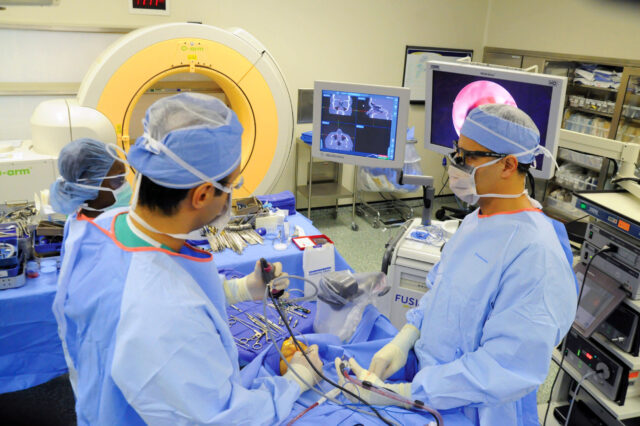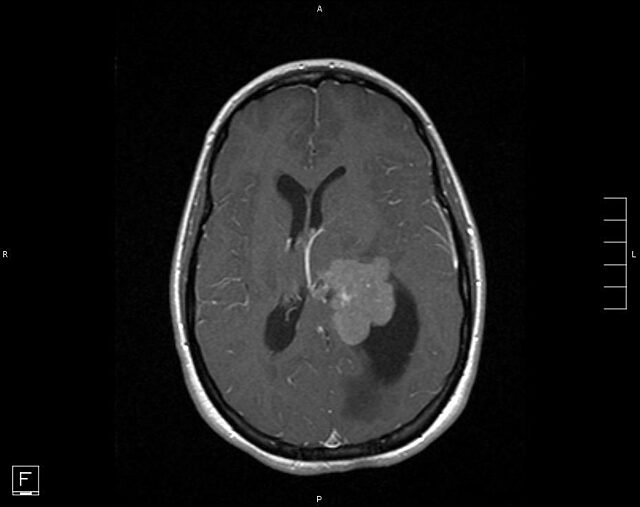Patient education

The skull base is one of the most complex anatomical regions of the body and one of the hardest to reach surgically. As its name suggests, this is the part of the skull which supports the brain and where the eye sockets, nasal cavities and ears connect to the brain. Tumors in this area can be some of the most difficult to treat because of the delicate structures surrounding it. Those structures include blood vessels and nerves which can affect speech, smell and eyesight.
Diagnosis of a skull base tumor begins with a thorough neurological examination. Because of the complexity of diagnosis of skull base tumors, UF Health’s skull base team is made up of a number of specialists who have expertise in different areas:
- Neurosurgery
- Oral and maxillofacial surgery
- Otolaryngology
- Neuroradiology
- Neuropathology
- Endocrinology
- Neuro-ophthalmology
- Radiation oncology and other oncologic specialties
This group of experts recognizes that every case is different and takes into account each patient’s individual situation. Our team decides which tests are to be used to give us the location and type of skull base tumor we are dealing with.
Imaging Tests:
- CT or CAT scans
- MRI
- PET scans
- Angiography
Biopsy Tests:
- Endoscopy (scope inserted through the nose and sinus cavities)
- Fine-needle aspiration
- Surgery
Treatment of skull base tumors typically includes one or a combination of these options:
- Surgery
- Advanced radiation therapy/proton therapy
- Chemotherapy
If you need post-treatment help, our therapy specialists are here to take care of you.
